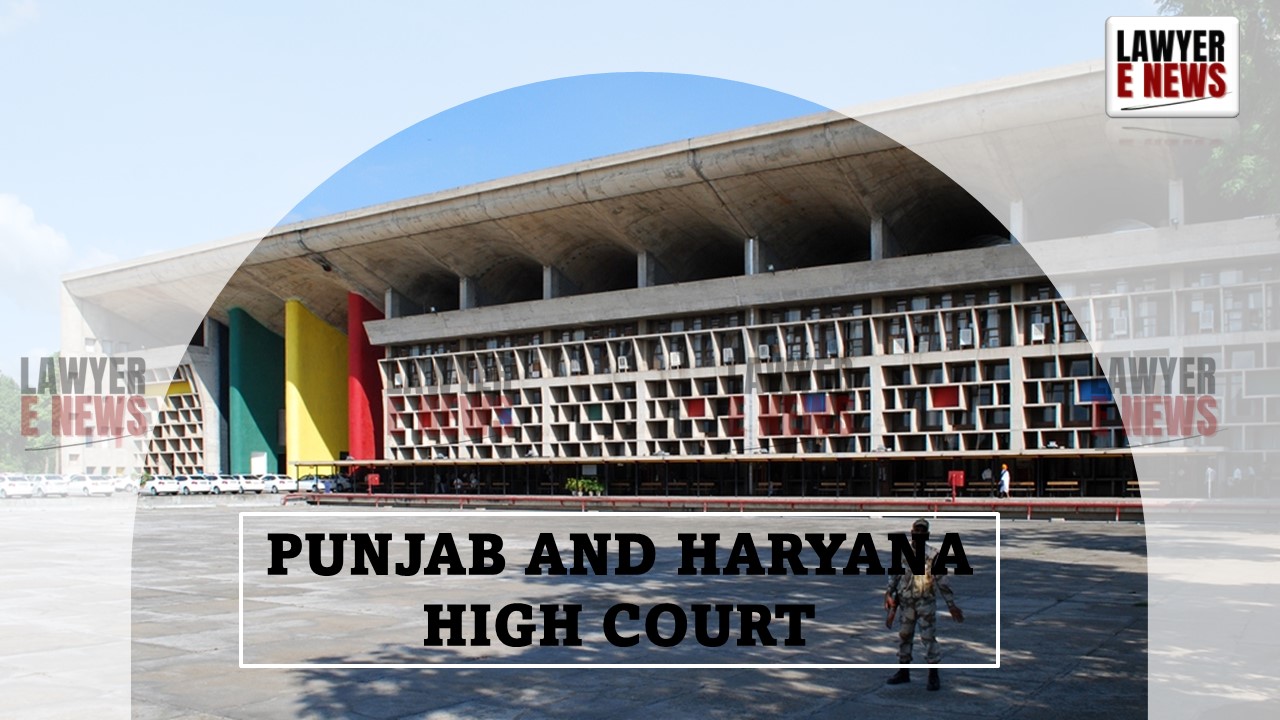-
by sayum
14 February 2026 2:22 PM



Punjab & Haryana High Court grants regular bail to petitioners accused of abetment under Section 306 IPC, highlighting the principle of bail.
The High Court of Punjab & Haryana, in a significant ruling, granted regular bail to the petitioners accused of abetment in the suicide of Surender Singh. The decision, delivered by Justice Kuldeep Tiwari, underscores the judicial principle that "bail is the rule and jail is an exception," emphasizing the importance of ensuring the presence of the accused for trial without unnecessary incarceration.
Facts of the Case:
On January 23, 2024, Surender Singh committed suicide, allegedly due to harassment by his wife Damanjit Kaur, her maternal uncle Jang Singh, and her cousin Kulbir Singh alias Kulvir Singh. A complaint was filed by Baljinder Singh, the elder brother of the deceased, citing continuous harassment and pressure from the accused, which purportedly led to Surender Singh's death.
The prosecution's case was based on a complaint that detailed the deceased's troubled relationship with his in-laws, who allegedly prevented him from returning abroad for work, causing him severe distress. A suicide note purportedly written by Surender Singh implicated the petitioners in his decision to end his life.
The petitioners' counsel argued that the allegations did not satisfy the legal ingredients of abetment under Section 306 IPC. They contended that counseling or advising a relative against going abroad does not amount to incitement or encouragement to commit suicide. Additionally, they highlighted the lack of specific roles attributed to each petitioner and their lengthy incarceration without trial progress.
Justice Kuldeep Tiwari's judgment reflected a balanced approach to bail jurisprudence, drawing on established legal principles:
Presumption of Innocence and Right to Liberty: The court reiterated that an accused person is presumed innocent until proven guilty and has the right to liberty unless there is a compelling reason to deny bail.
Role of Bail in Criminal Justice: Citing precedents like State of Rajasthan v. Balchand alias Baliay and Gurbaksh Singh Sibbia v. State of Punjab, the court underscored that bail serves to ensure the accused's availability for trial while safeguarding their liberty.
Assessment of Evidence: The court noted that the final report had been filed, charges framed, and none of the 19 prosecution witnesses had been examined yet, making prolonged detention unjustifiable.
Justice Tiwari stated, "Bail is the rule and jail is an exception. The presence of the accused can be secured through means other than detention, ensuring that the fundamental rights of the individual are not compromised."
The High Court's decision to grant bail reflects a commitment to uphold the rights of the accused while balancing the demands of justice. By emphasizing the principle that detention should not be punitive, the judgment reinforces the legal framework that ensures fair and reasonable treatment of individuals awaiting trial. This ruling is expected to influence future bail applications, especially in cases involving allegations of abetment under Section 306 IPC.
Date of Decision: July 11, 2024
